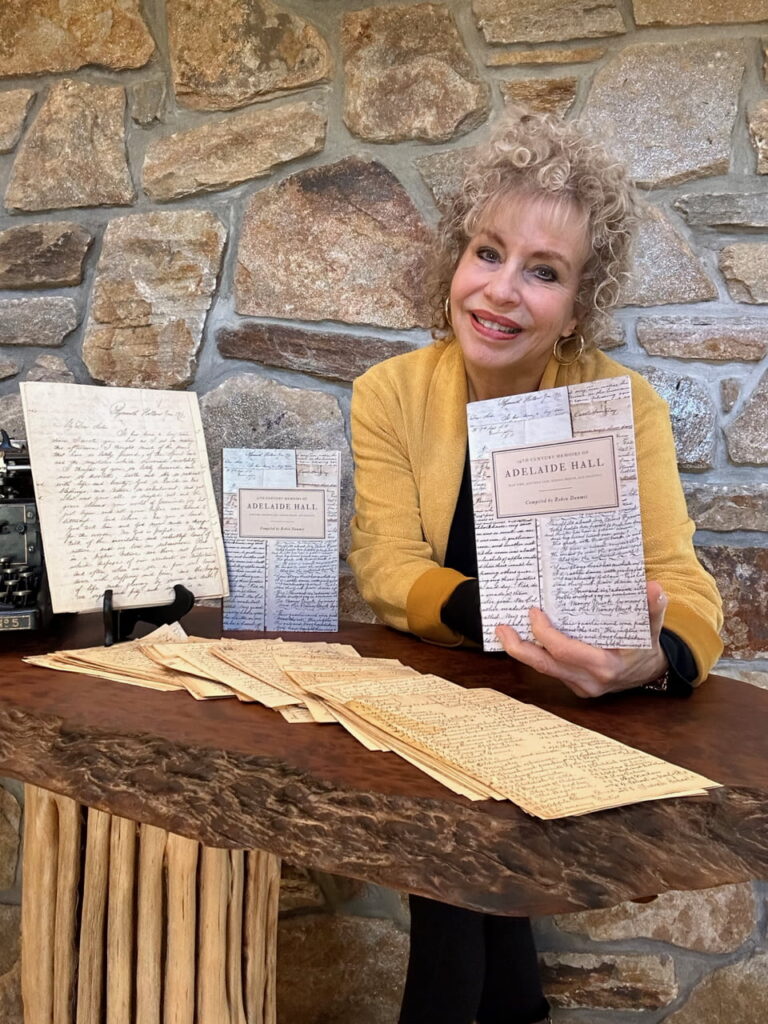OLD Memoirs Now Published, written 187 years ago by a woman from a prominent family, were lost; and so I’ve published for her! Get Your Copy~
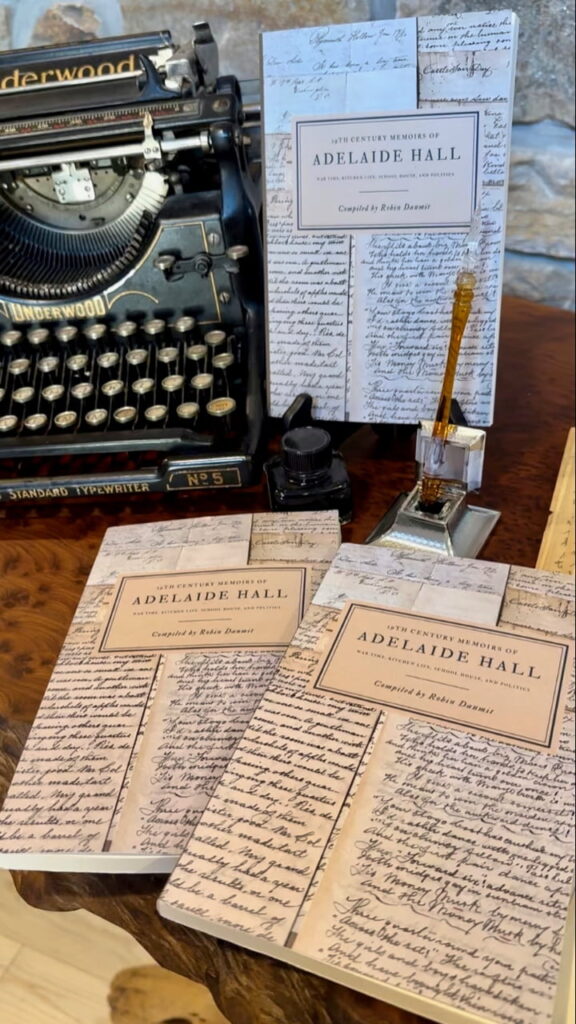
19th Century Memoirs of Adelaide Hall, Compiled by Robin Daumit, can be purchased on Amazon and some libraries.
I am pleased to say that when books are being revoked from our children’s school libraries and classrooms, this one was just approved, in Anne Arundel County, for high school libraries.
It is my intention for all of our middle and high school age children to have access to this book, as supplementary reading for American History.
Valuable History In A Shoebox
Allow me to share a fascinating ‘find’ with you. Handwritten memoirs, written 150 years ago, by Adelaide Hall.
Who was Adelaide Hall?
First, and most important, Adelaide Hall is the granddaughter of Captain Asaph Hall of the Connecticut Militia (1775-1779).
Captain Asaph Hall was member of the Goshen Committee of Correspondence and a signer of Connecticut’s ratification of the constitution of the United States of America, and Connecticut’s state legislator.
Adelaide’s maternal grandparents were Robert and Eunice (Humphrey) Palmer, who was descended from the pilgrim of 1629, Walter Palmer of Nottinghamshire, England and settled in Stonington, Connecticut in 1653.
Adelaide’s father, Asaph Hall ll, became heir to the eastern part of Goshen, called Hall Mendon/Meadows, as his father served in the Revolutionary War (account for this information can be found on pages 111 and onward).
Granddaughter, Daughter, Sister and Mother
As it turns out, Adelaide was also the sister to Asaph Hall lll, the astronomer who first discovered the two moons around Mars.
After the death of their father, Asaph being the eldest son, helped support his mother and five siblings by working on the family farm.
As the memoirs of Adelaide unfold, she also writes about her son Brigadier-General Lyman Walter Kennon, who attended West Point and enjoyed a long and successful military career.
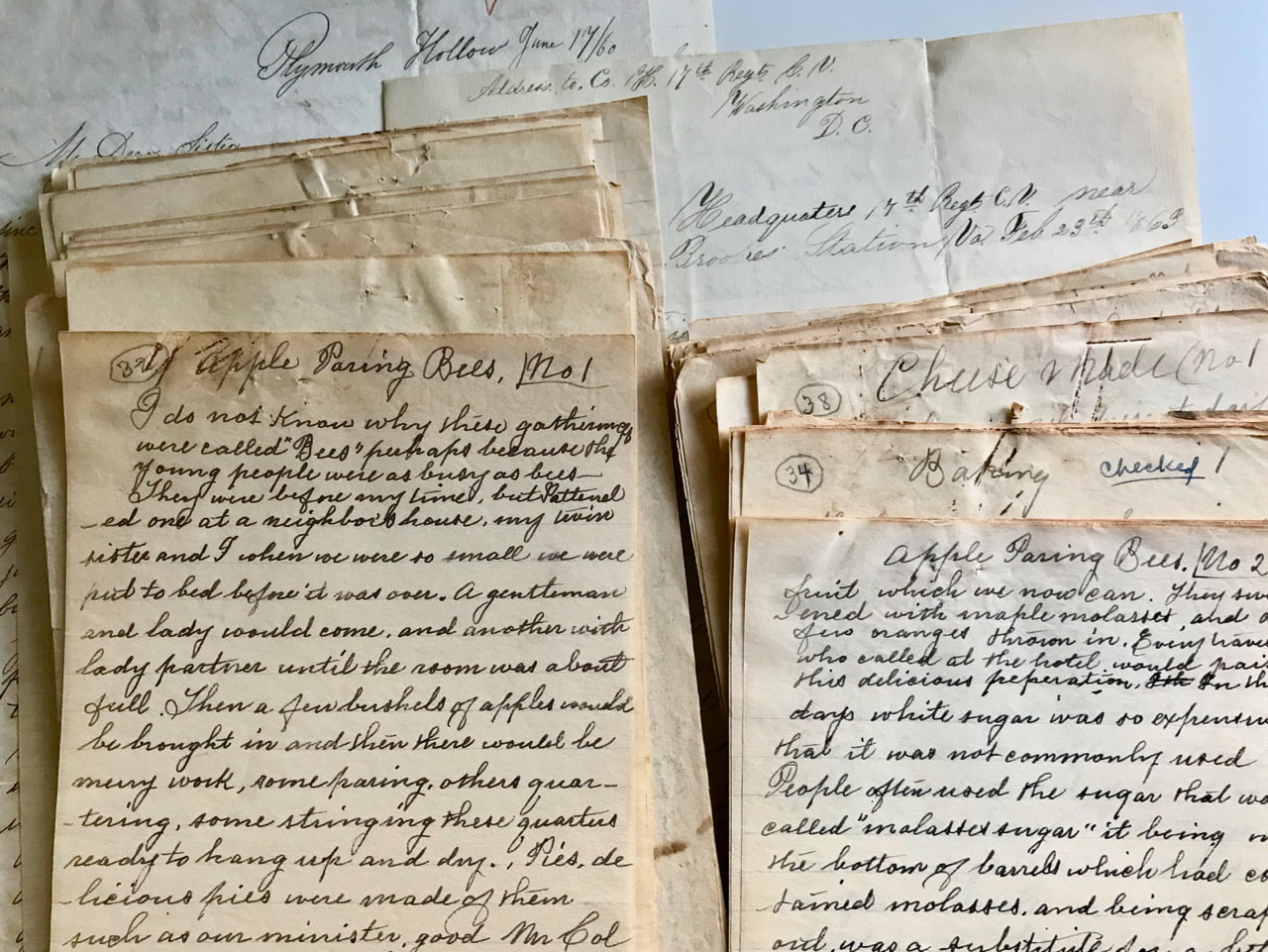
Memoirs Intended To Be Published
Adelaide, definitely had her work cut out for her; helping her mother with the children, the meals, most of which were homegrown or raised by their family.
She clearly intended her memoirs for publication, as she methodically documents so many aspects of the life in her family:
- War Time – as it was the time of the Civil War and she had a brother and village friends who were away on the battlefield.
- Kitchen Life – at a time of no electricity, indoor stove or means to store food, as is done in our current times.
- School-House – a time in which all ages and grades were educated in a single school-house room.
- Politics – a newly established community in Connecticut, often speaking of homeland England, new leadership and ultimately the friendship her brother develops with President Lincoln.
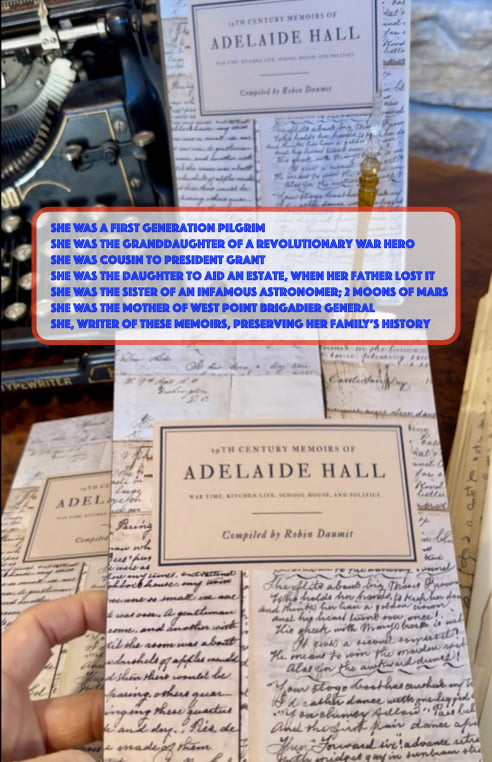
Who Publishes Old Memoirs?
Unfortunately, Adelaide’s memoirs were never published into the fascinating documentation of life in her times, as she intended. Instead, nearly 200 years later they ended up in my hands.
A shoebox in my grandparents attic, and yet … she was of no relationship to our family.
Intrigued? I certainly was, and wow, what I discovered in these pages I felt certain needed to be shared with America. And so… I have.
Now on Amazon: The 19th Century Memoirs of Adelaide Hall – compiled by Robin Daumit
200 Year Old Handwritten Memoirs
Writing was the only form of communication for most people back in the 1800’s. In Adelaide’s town, the mail arrived only once a week, by stagecoach, on treacherous mud roads, up hill.
Apparently, the hillside in Goshen Connecticut, where her family and a small community lived at that time, is no longer inhabitable.
It sat high in an open, wind gusty area overlooking the towns below. Winds and treacherous freezing conditions were spoken of in her writings.
It was not uncommon for people of those times (and before), to keep a diary, find their entertainment in reading, and sometimes hope to publish a book of their own.
I was so impressed by the detailed depiction of the life she captured in her memoirs, and the vast interests she wrote about.
She didn’t simply write about ‘girl stuff’, such as housework, boy crushes, cloths and the likes, though those were talked about.
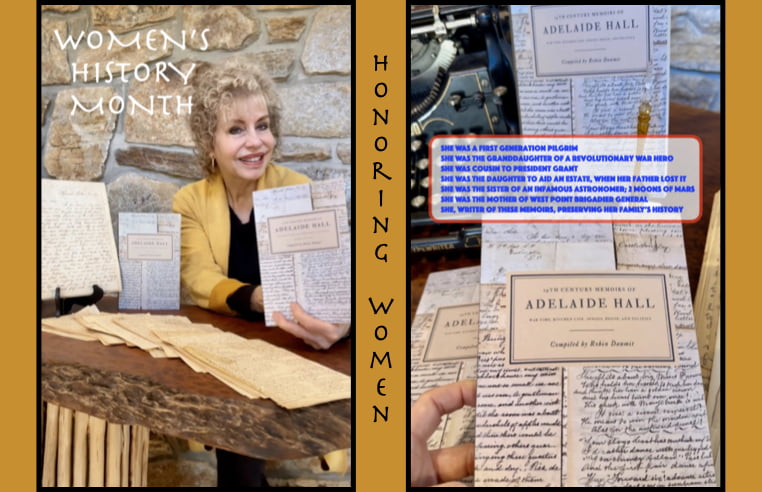
The Publishing Of Important Factual History
Her writings were also about politics, national events and invitations to social gatherings, some of which I found were documented as major political events. Such as the one you will read about on page 122, in the published book.
Adelaide speaks of this reunion, with a huge clan that hailed originally from Nottinghamshire England.
In addition to the Hall family being invited, former President Grant was also invited to attend the reunion, identifying him as a descendant of the eighth generation.
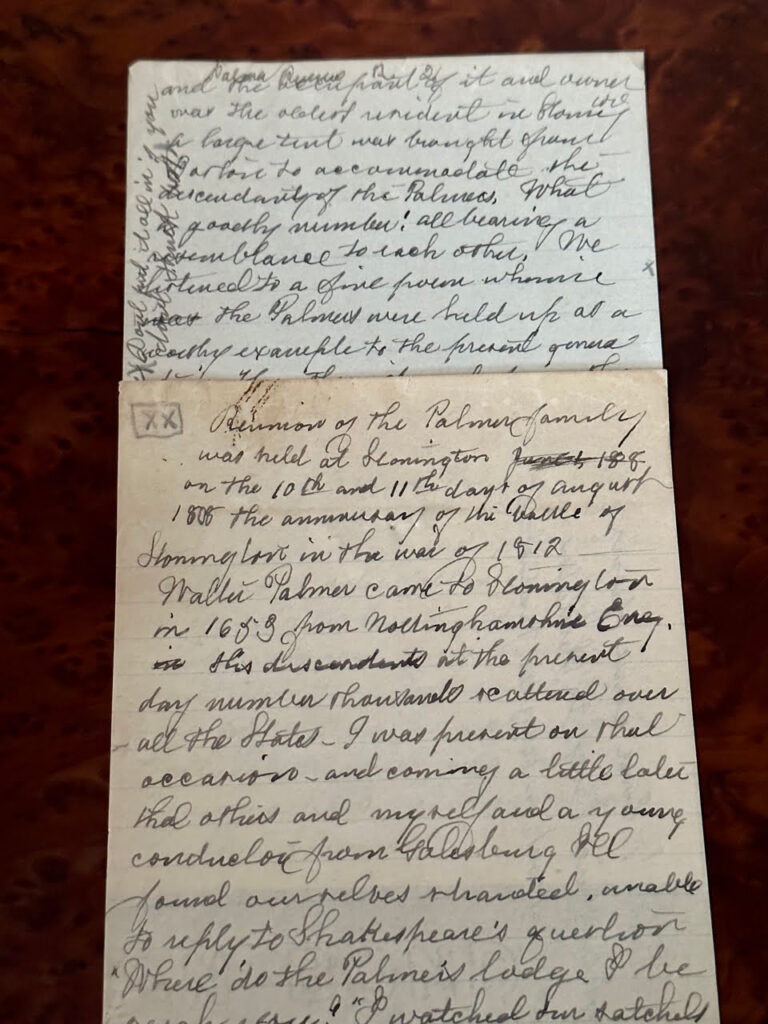
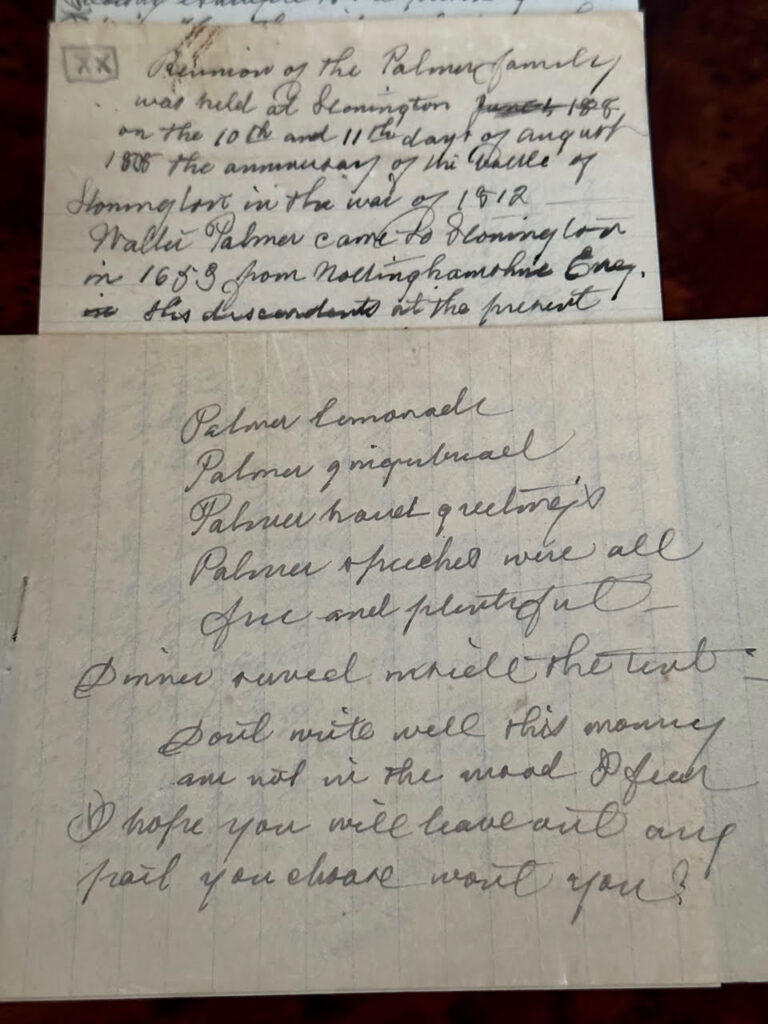
Kitchen Life In Days Of Old
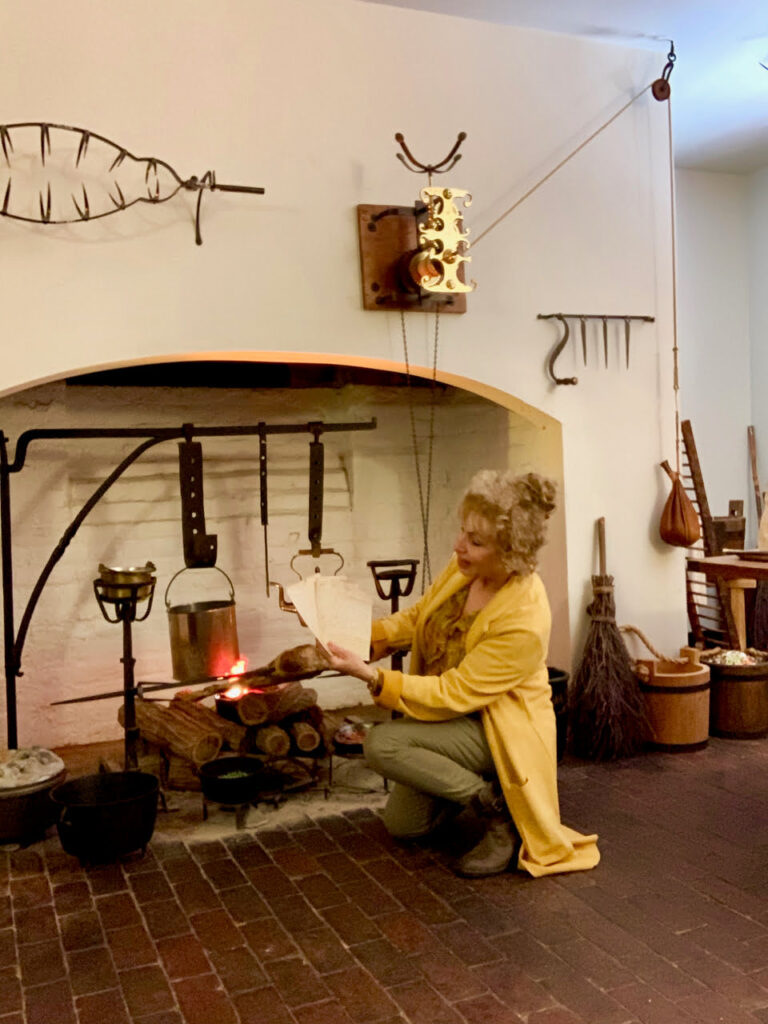
Can you imagine kitchen life 200 years ago? I visited the Paca House in Annapolis which has a replica of what the kitchen would have been like in Adelaide’s kitchen.
I can’t imagine how meals were prepared with without refrigeration or a stove!
Adelaide does write about the first stove their family acquired, and the stories that would be gathered by such a memorable occasion.
Throughout these old memoirs, are stories about baking, butter and cheese making, and the numerous jobs that prepared harvest-time foods, for the winter months.
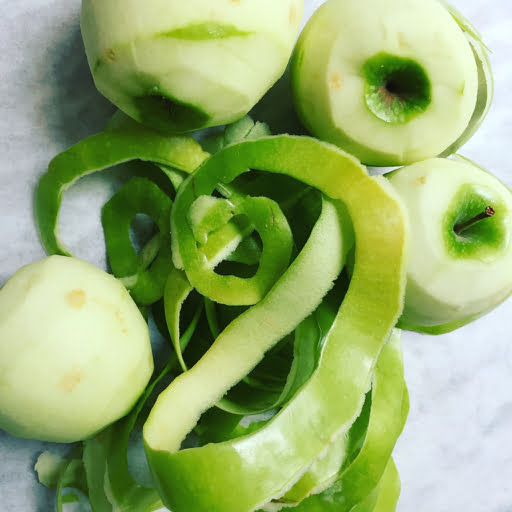
Here is a short synopsis from her kitchen on ‘Apple Paring Bees Day’.
“A barrel of fine dried applesauce, more delectable than any other kind of fruit. It was sweetened with maple molasses, and a few oranges thrown in. For those days, white sugar was so expensive that it was not commonly used.”
There were many in the kitchen, both girls and young men. There was singing, and flirtations, one with the other.
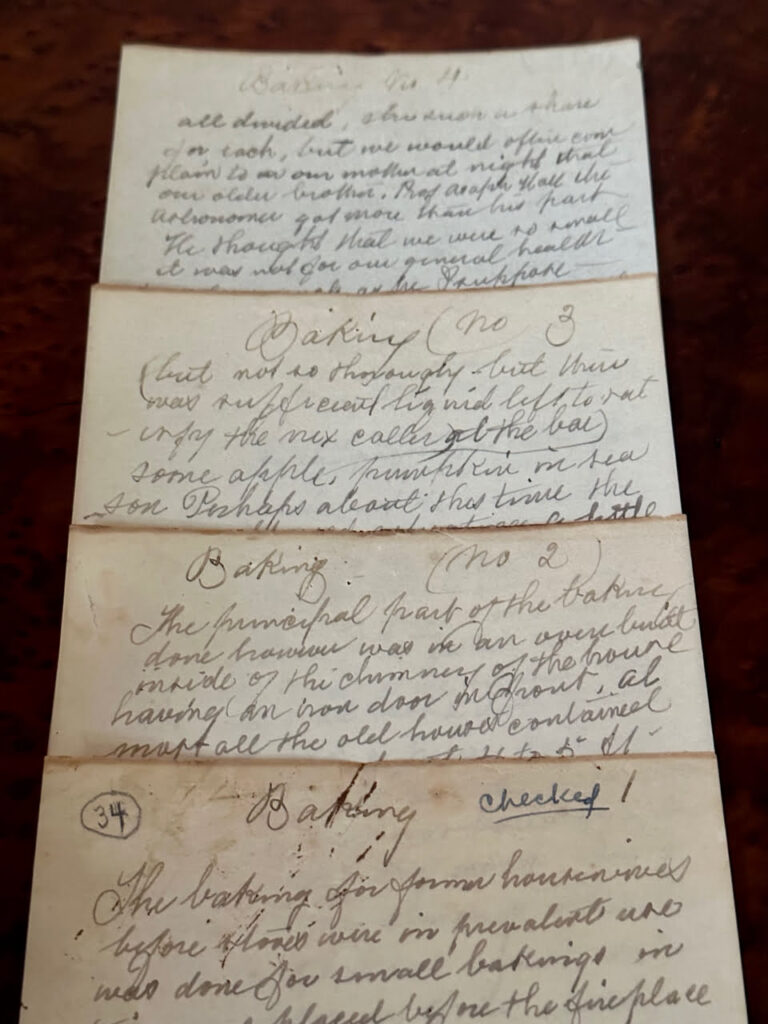
Old Memoirs Give Us A Glimpse Into The Past
With no electricity, candle making was a vital part of weekly chores, as they had to make enough candles for the week ahead.
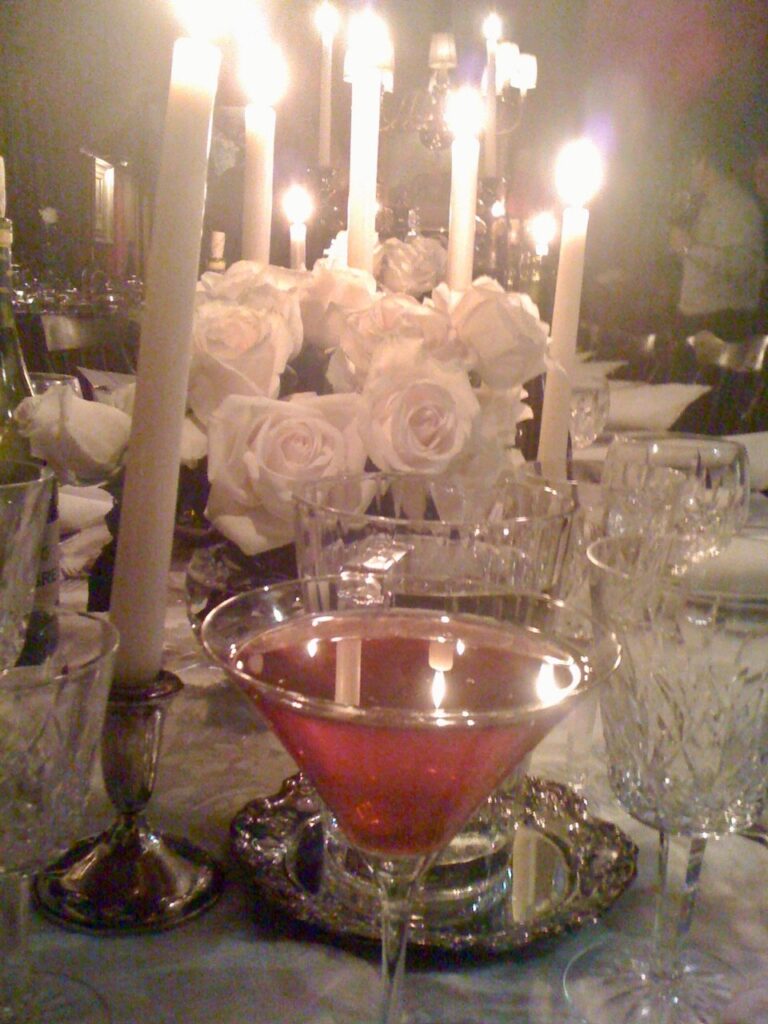
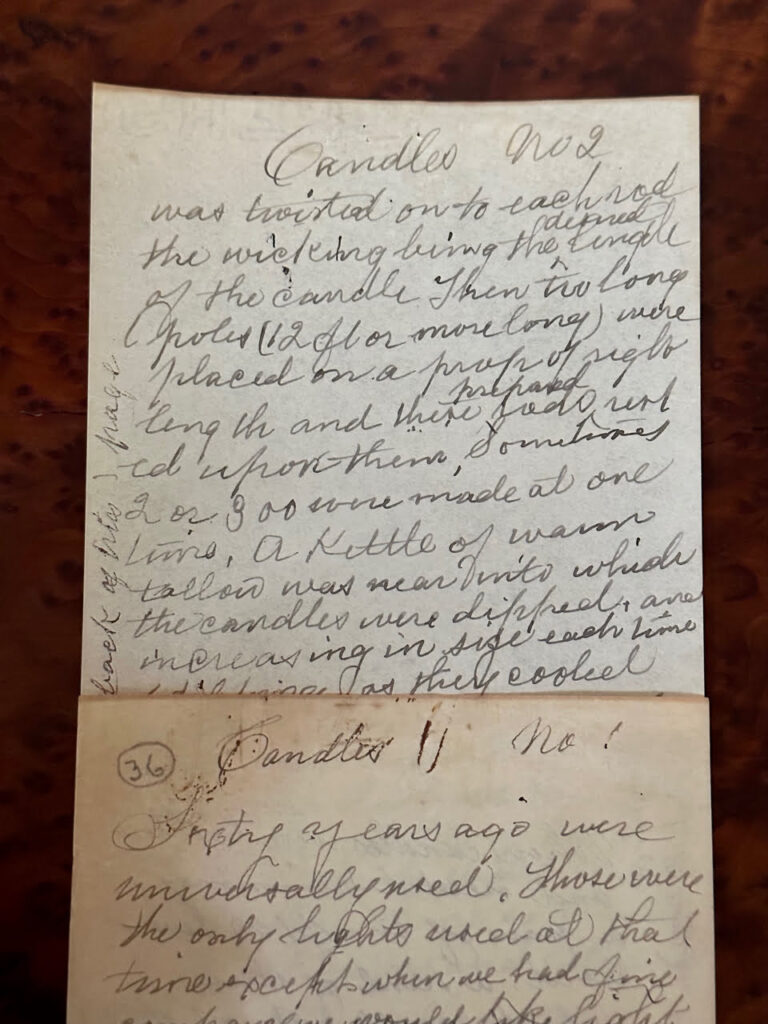
Since there was a section in the memoirs in which she spoke about wool and sheep, I assumed that candles were made from tallow, from animal fat.
These were known to smell badly and burn with a smoky flame, but it provided light in the dark days of winter.
My goodness, what difficult times these sounded like. Now that I have published her memoirs, I am even more grateful for the simple things I can easily take for granted in my life today.
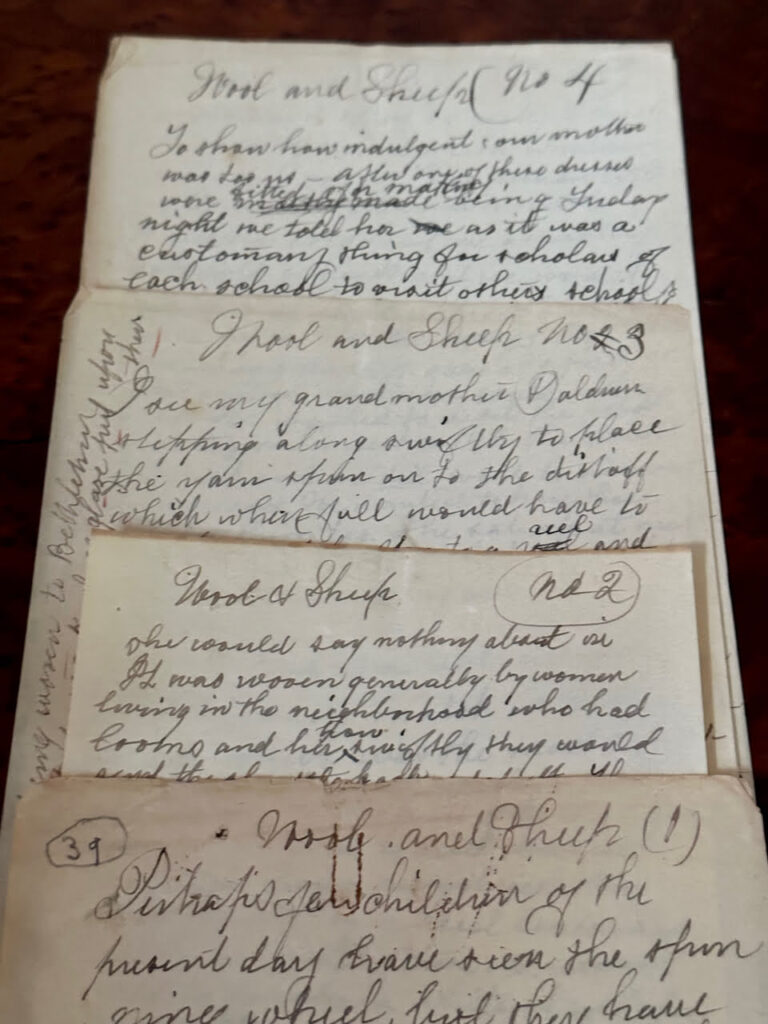
Once I finished the transcribing, which took me an entire winter, working long hours everyday; I was mesmerized by the stories Adelaide told.
Her account for life from a little girl’s perspective, as she looked back, to the woman she became, spoke of a variety of aspects a women of her times lived through.
OLD Memoirs Loaded With American History
I would encourage you to pick up a copy, share with young families, or enjoy the read yourself.
In my opinion, this book should be ‘required reading’ in public schools across America.
If you are reading this now and know how to go about getting this valuable piece of history into the classrooms, or through the Board of Education, please contact me.
Daughters of the American Revolution – DAR
Adelaide Hall is the second original daughter of the American Revolution, so let’s see if I am able to get her name where it belongs in an organization that is more tightly shut than Fort Knox.
Like many historically rooted organizations, the DAR would greatly benefit from the newly found historical facts and stories written first hand by one of their daughters herself.
The Library of Congress will be my next outreach in getting Adelaide’s original documentation of both her and her brother, Asaph Hall’s life to the library alongside of Asaph’s documents.
How Did These OLD Memoirs End Up In My Care And Now Published?
My grandfather was a war historian for the White House, back in the 1940’s, and an avid reader about the Civil War. I believe these letters were given to him to transcribe and publish. Why?
First, because there are two letters, in the collection, written to Adelaide from the Civil War battlefield.
Secondly, included was my grandfather’s stack of papers, both in hand written and typed, which appeared to be his attempts to transcribe.
Since my grandfather was a war historian for the army in Washington DC, I can only guess that the Civil War letters were of interest to him, which tied him to the woman they were sent to.
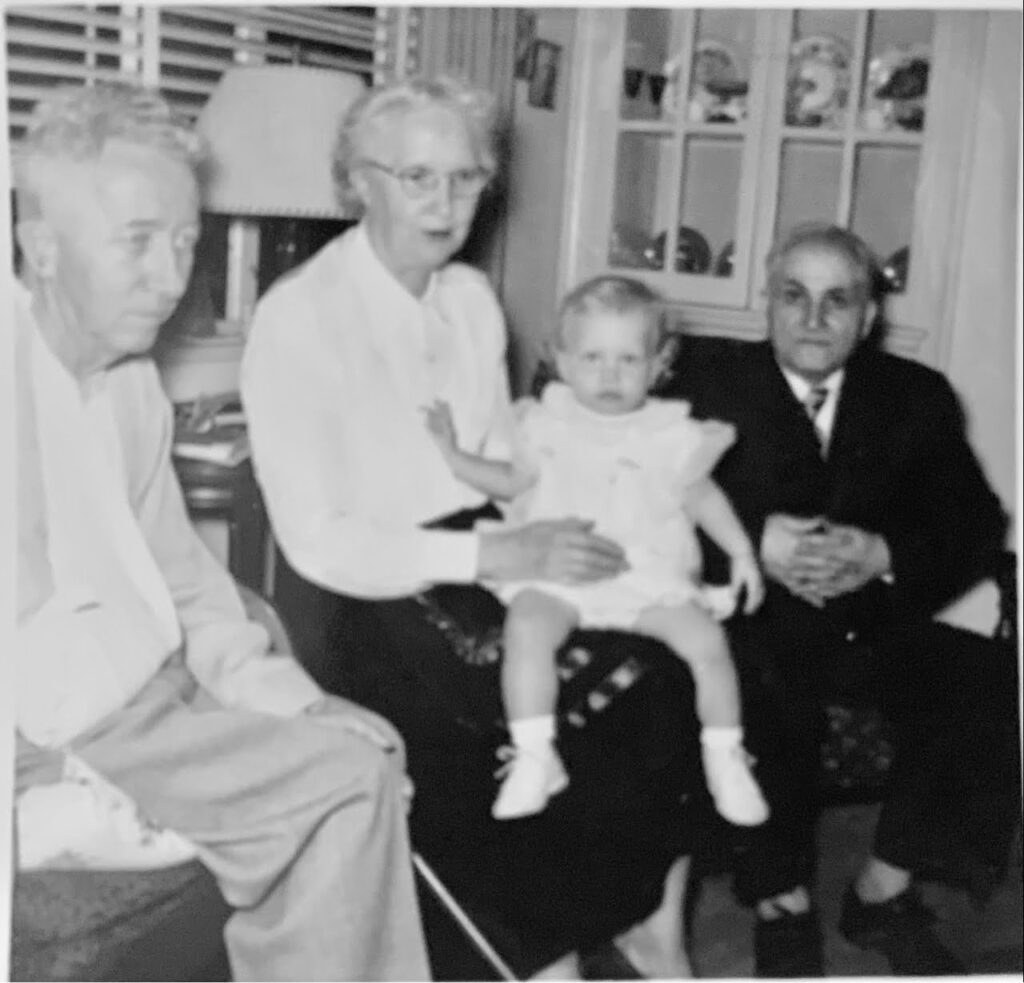
Why Weren’t These Memoirs Published In Later Years?
An attempt to transcribe Adelaide’s story was clearly made by my grandfather. It didn’t take long, as I attempted to transcribe them, to realize why there was a stumbling block.
In several places throughout the memoirs, writings from poems and songs, dating back to the 1600’s, in dialect we don’t use in English anymore, are present.
This made it difficult to understand what was being said. Fortunately, with the help of the internet in 2010, I was able to type in a few obscure words at the beginning of a poem or song, and the remaining words popped up through Google!
I hope you will find this story as fascinating an account for a lifestyle we no longer live, as I did, and take a moment to experience gratitude for the conveniences of our life now!
